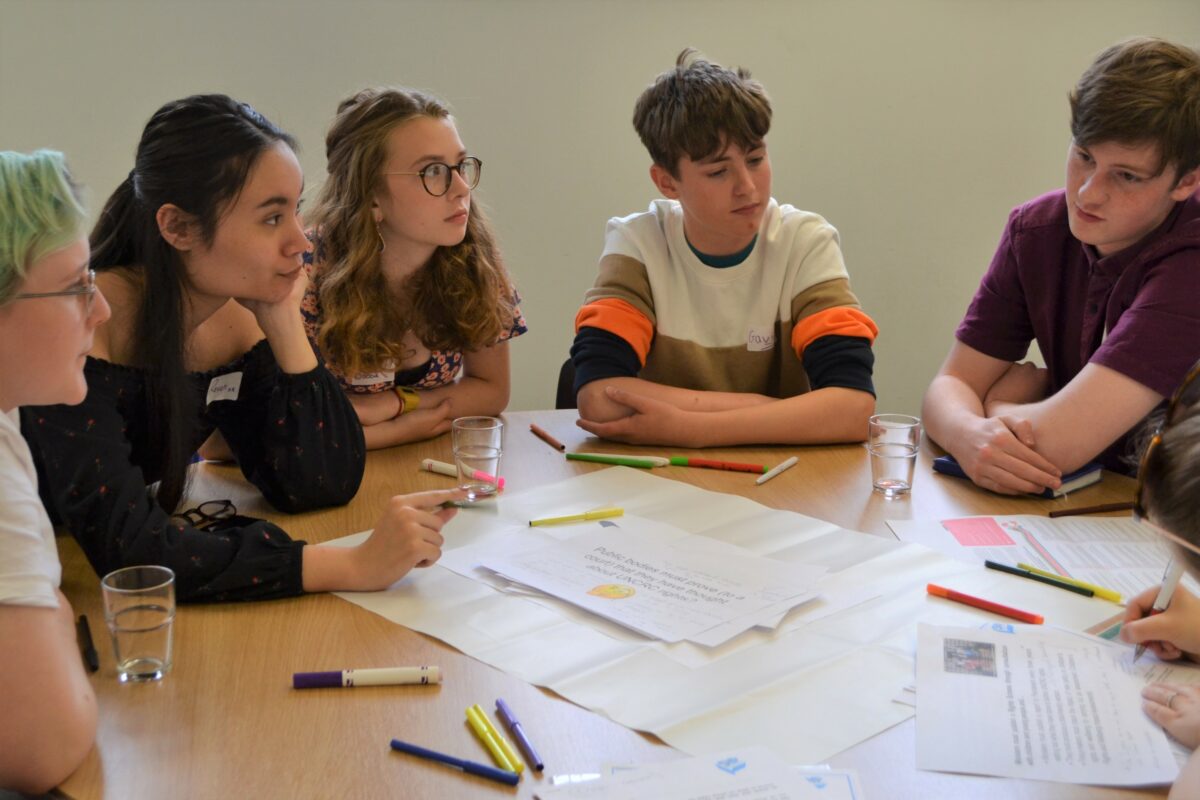This blog is an excerpt of Erin Campbell’s speech delivered to Place2Be Scotland, a children’s mental health charity providing in-school support & training for emotional wellbeing.
Everything that SYP does is grounded in our policy. Our policy is created, consulted on, debated and voted by young people, so you can rest assured that every piece of SYP policy is representative of Scotland’s young people. Recently, SYP unveiled our new manifesto, From Scotland’s Young People, which will guide our work for the next five years. More than 6,000 young people had their voices heard in our survey and the result is a groundbreaking report detailing the issues facing us today. A piece of policy which has stuck with me is; ‘There should be mandatory training for those working in education and health care settings on how to identify mental health problems and provide support for all young people, especially those most at risk.’ which passed with 89% of young people in favour. Speaking from personal experience, I know that my time at school would have been a lot easier if all my teachers knew how to recognise mental health problems in young people. I often felt unheard and ignored, but often it was because my teachers simply didn’t have the knowledge and training they needed to support me.
Our policy log is filled with policy just like this, everything from limiting the promotion of weight loss apps to Implementing the Scottish Government’s Social Isolation and Loneliness Strategy are all ideas that have been approved by young people themselves. Our policy log is proof that young people in Scotland are not getting the support that they need to achieve their full potential and thrive in their communities.
When we talk about mental health, we often hear the same statistics over and over again. We all know that 1 in 4 people will experience a mental health problem in their lifetime, but statistics are not stories. They do not represent the lived experiences of young people.
throughout the country and if we want to make a genuine change to mental health in Scotland, it’s time we started listening to those experiences. In April, SYP partnered with Young Scot and Youthlink Scotland to deliver ‘Lockdown Lowdown’, a nationwide survey which asked young people about their experiences of Covid-19. Almost 2,500 young people took part, and the findings identify the issues that decision makers must act upon for our young people. 58% of respondents said they had some concern over their ability to access their human rights during the pandemic. Almost 40% said they were concerned about their own mental wellbeing and nearly half were concerned about another person’s mental wellbeing.
We recognise that the impact of the pandemic will be long lasting and so the Scottish Government commissioned a follow on ‘Lockdown Lowdown’ survey that received over 6,000 responses – this report launched on Tuesday this week, and I would really encourage you to take a look on our website. When asked if they required any more information on different topics, the majority of young people stated a need for more information on mental health. When young people do not have access to this information, this is a direct violation of Article 24 of the UNCRC. Because human rights are interdependent, not only does this violate our right to a good standard of mental health but consequently, our education too.
To help tackle this, SYP and the young people we represent are calling for a human rights based approach to mental health and mental health services. The Our Minds Our Future group, formally known as the Youth Access Project, is a UK wide project Ied by Youth Access, a charity that advocates for high-quality mental health services for young people across the UK. The Scottish branch of the project, led by SYP and SAMH, is a group of young people, many of whom have lived experience of mental health services in Scotland. The project aims to enable young people to shape and influence the design and development of young peoples’ community-based mental health services. As we come to the end of our first year of the project, we are calling for a number of changes, including:
● Youth mental health services to be available for those up to the age of 25, not just up to the age of 18
● An increase of high quality mental health education
● A person centered approach to treatment.
Earlier, I said that statistics are not stories. No-one will never truly understand young people’s perspectives of mental health in Scotland if they do not listen. Before my time is up, I want to leave you with a quote given to SYP by a young person as part of our mental health campaign, Speak Your Mind.
“People think that rights are less important if you have a mental health problem. My sister was left in hospital lying on the floor with nothing all night because the hospital staff thought it was better for her, but it wasn’t and it broke her right to a good standard of living.”
Young people are not just numbers on a page. We are experiencing unprecedented challenges with little access to appropriate support that respects our human rights. If we all work together to amplify young people’s voices, we can make Scotland the best place in the world to grow up.



